Are you tired of dealing with the uncomfortable symptoms of IBS? Well, here’s some good news for you: there are certain foods that can actually help alleviate your symptoms!
In this article, we will explore the best foods to eat if you have IBS, so you can start feeling better and taking control of your health.
By making a few simple dietary changes, you can find relief from bloating, cramping, and digestive distress.
So let’s dive in and discover how to nourish your body and soothe your gut with an IBS-friendly diet.
Key Takeaways
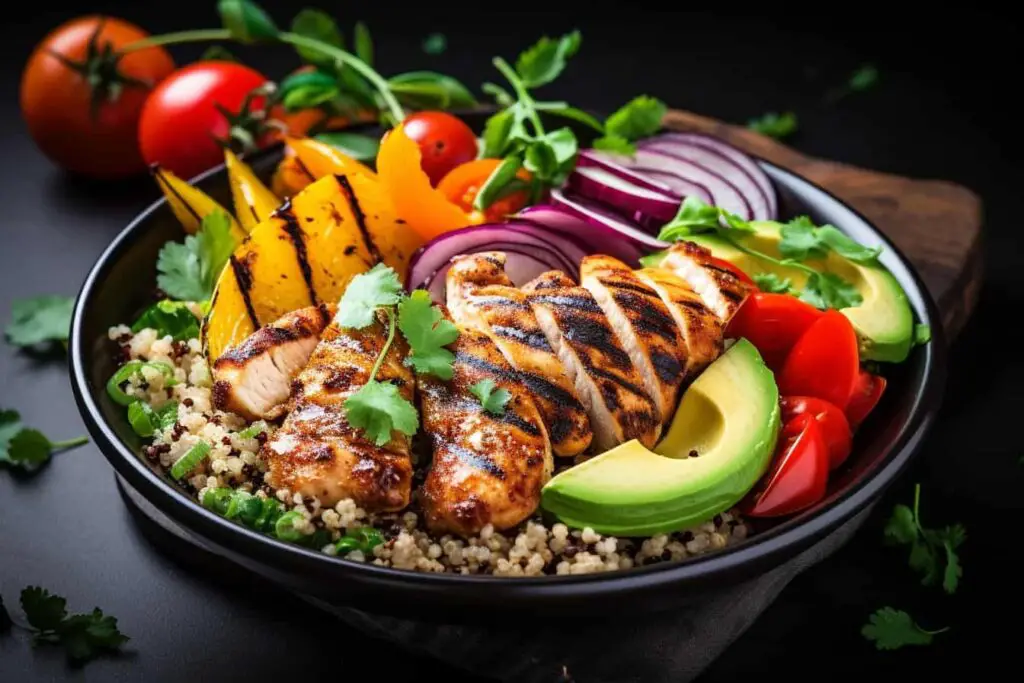
- Following an IBS diet can effectively manage symptoms of IBS, such as abdominal pain and irregular bowel movements.
- Different types of diets can help manage IBS symptoms and improve overall health, such as the low-FODMAP diet, gluten-free diet, and dairy-free diet.
- Insoluble fiber foods, such as whole wheat bread, brown rice, spinach, kale, and bran cereals, promote regularity and improve digestive health.
- Lean meats, such as skinless poultry, lean cuts of beef and pork, provide valuable protein and healthy fats that are crucial for managing IBS symptoms.
- Low-fat dairy options, like skim milk and Greek yogurt, offer important nutrients such as calcium and protein, and opting for these options contributes to overall health and wellness.
- Almond milk and lactose-free milk products are alternatives to regular milk, providing the same nutritional benefits and easier digestion for those with lactose intolerance.
- Consulting a healthcare professional or registered dietitian is crucial for personalized guidance and creating a meal plan for an effective IBS diet.
What is IBS?
Irritable Bowel Syndrome (IBS) is a gastrointestinal condition that can cause a range of digestive symptoms such as abdominal pain and irregular bowel movements.
While the exact cause of IBS is unknown, it is believed to be a combination of factors including abnormalities in the digestive tract, food intolerances, and an overly sensitive colon.
Managing IBS involves a multi-faceted approach that includes lifestyle changes, stress management, and dietary modifications.
One key aspect of managing IBS is following an IBS-friendly diet, which focuses on incorporating foods that are easily digestible and gentle on the gut.
Benefits of Following an IBS Diet
You can experience significant benefits by adhering to an IBS diet, such as reduced symptoms and improved overall digestive health. Following an IBS diet can help alleviate the uncomfortable symptoms associated with irritable bowel syndrome.
Eliminating trigger foods and incorporating high-fiber options can help you find relief from abdominal pain and regulate your bowel movements. You know, the stuff that really messes with your day.
By watching and adjusting what you eat, you can bid farewell to those discomforts and say hello to relief. It’s like giving your digestive system a little TLC!
An IBS diet can provide relief from bloating and gas, saving you from some potentially embarrassing situations!
Incorporating fiber-rich foods like fruits, vegetables, and whole grains can promote regular bowel movements and prevent constipation.
- Related: Best Fruits for IBS
But here’s the thing, you can’t do it alone. That’s where a registered dietitian or healthcare professional who specializes in gastrointestinal disorders comes in.
They’ll be your guiding light through this whole process. Together, you’ll identify those trigger foods and create a meal plan that’s tailor-made just for you.
It’s like having your very own food guru. With their expertise, you’ll learn which foods are safe to eat and how to make nutritious choices without sacrificing flavor and your health.
Now, let’s talk about the bigger picture. Following an IBS diet isn’t just about managing your symptoms; it’s about improving your overall quality of life.
By sticking to this plan, you’ll find relief from the anxiety and stress that often come with unpredictable symptoms. It’s like taking back control of your health.
So remember, you’re not alone in this journey. There’s support available every step of the way. Embrace the power of an IBS diet, and say hello to a happier, healthier you. Your body will thank you for it!
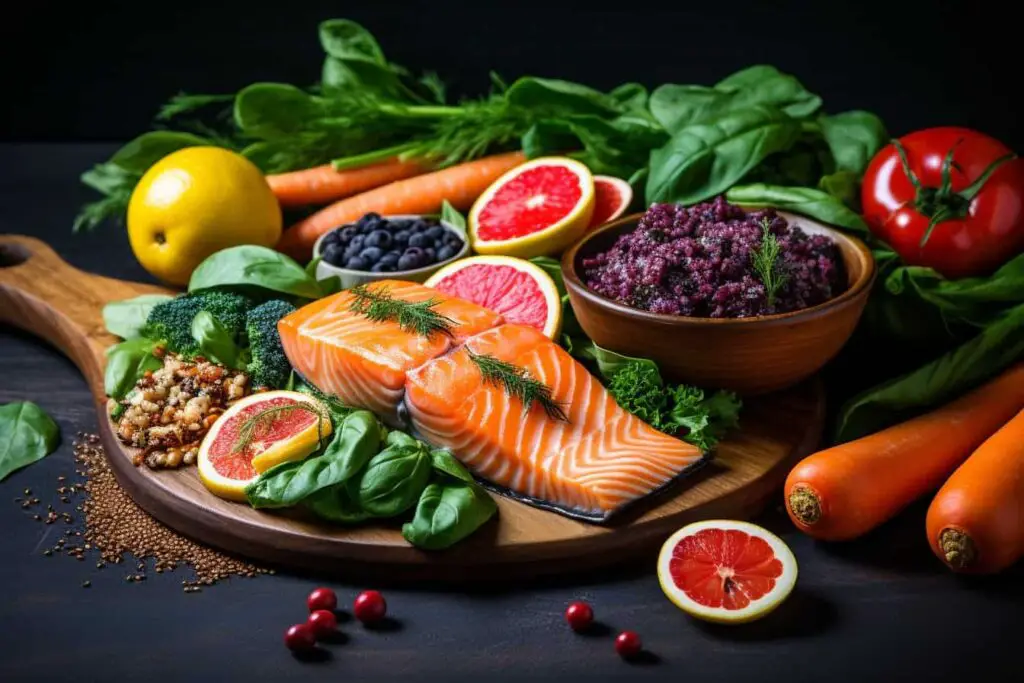
Types of Diets for IBS
If you have been diagnosed with IBS, you may have heard about different types of diets that could potentially help relieve your symptoms.
Three popular diets recommended for IBS are the low-FODMAP die, the gluten-free diet, and the dairy-free diet.
The low-FODMAP diet focuses on avoiding certain carbohydrates that are known to be fermentable and can cause digestive issues.
The gluten-free diet eliminates foods containing gluten, a protein found in wheat, barley, and rye that some individuals with IBS may be sensitive to.
Some people with IBS may also try a dairy-free diet, as lactose intolerance is common among those with this condition.
It’s important to consult with a healthcare professional or a registered dietitian before making any significant dietary changes to ensure proper guidance and adherence to daily nutritional goals.
1. Low-FODMAP Diet
The Low-FODMAP diet is a recommended approach to managing symptoms of IBS by reducing the intake of certain carbohydrates called FODMAPs, which can cause bloating and abdominal pain.
Here are five key things to know about the Low-FODMAP diet:
- Elimination Phase: The first phase involves eliminating high-FODMAP foods from your diet for a designated period, usually around six to eight weeks.
- Reintroduction Phase: After the elimination phase, you gradually reintroduce FODMAP foods back into your diet to identify specific triggers.
- Supported by Research: Numerous studies have shown that following a low-FODMAP diet can significantly reduce IBS symptoms in about 75% of individuals.
- Professional Guidance: It’s important to work with a registered dietitian who specializes in the low-FODMAP diet to ensure proper guidance and support throughout the process.
- Effectiveness: When followed correctly, this dietary approach can be highly effective in managing IBS symptoms and improving quality of life.
Now, let’s take a look at a table that showcases examples of both high- and low-FODMAP foods to give you a better understanding:
| High-FODMAP Foods | Low-FODMAP Foods |
|---|---|
| Apples | Bananas |
| Wheat | Rice |
| Onions | Green beans |
| Milk | Lactose-free milk |
| Honey | Maple syrup |
Read more about IBS and Low-FODMAP Diets.
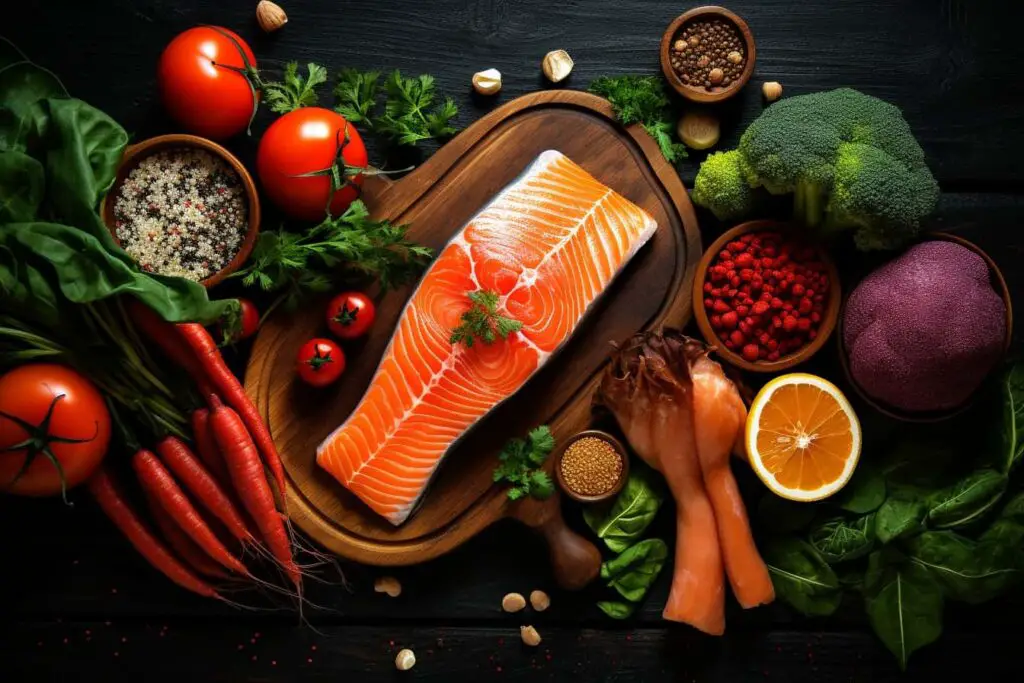
2. Gluten-Free Diet
If a low-FODMAP diet doesn’t help relieve your symptoms, it might be worth trying a gluten-free approach. Gluten, found in wheat, rye, and barley, is debated to be related to IBS.
The gluten-free diet has become quite popular as a potential way to manage symptoms of certain digestive conditions, like celiac disease.
However, before making any dietary changes with gluten, it’s crucial to test for celiac disease to rule out this condition.
The availability of gluten-free dining options has increased over the years, so it’s easier to find. But gluten-free foods can sometimes be more expensive compared to their regular counterparts.
Remember to consult with a healthcare professional or registered dietitian before making any significant diet changes to ensure it meets your unique nutritional needs while effectively managing your IBS symptoms.
Learn more about IBS and a Gluten-Free Diet.
3. Dairy-Free Diet
Consider eliminating dairy from your meals to see if it helps alleviate any digestive discomfort you may be experiencing. Many people with IBS find relief by following a dairy-free diet.
Dairy products contain lactose, a sugar that can be difficult for some individuals to digest properly. This can lead to symptoms such as bloating, gas, diarrhea, and stomach pain.
Research shows that eliminating or reducing dairy intake can improve IBS symptoms in some people.
Instead of dairy milk, consider trying plant-based alternatives like almond milk or oat milk. Opt for lactose-free options when it comes to cheese and yogurt.
Not everyone with IBS will need to eliminate dairy completely, so experiment and listen to your body’s response when making changes to your diet.
Here are three key points to consider when following a dairy-free diet:
- Calcium alternatives: It is important to ensure an adequate intake of calcium, which is typically found in dairy products. Good sources of calcium for those on a dairy-free diet include fortified plant-based milks, leafy green vegetables (e.g., broccoli, kale), and fortified tofu.
- Protein sources: Dairy products are also a common source of protein. To meet protein needs, individuals can include alternative sources such as legumes (e.g., lentils, chickpeas), nuts and seeds (e.g., almonds, chia seeds), and quinoa.
- Nutrient supplementation: Certain nutrients like vitamin D and vitamin B12 may be lacking in a dairy-free diet. It may be necessary to supplement these nutrients or consume foods that are fortified with them.
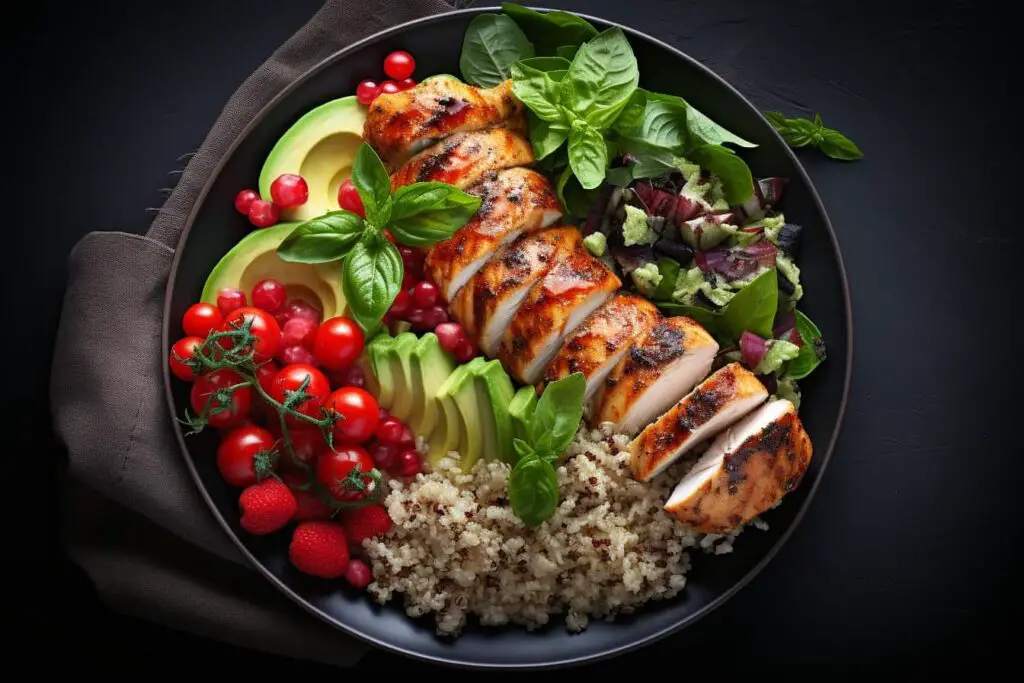
Fermentable Oligosaccharides, Disaccharides, Monosaccharides and Polyols (FODMAP) Foods to Avoid
Let’s explore another important aspect of an IBS-friendly diet: avoiding FODMAP foods.
FODMAP stands for Fermentable Oligosaccharides, Disaccharides, Monosaccharides and Polyols – a group of carbohydrates that can trigger digestive symptoms in individuals with IBS.
By avoiding or limiting high-FODMAP foods, you can help alleviate symptoms like bloating, gas, and abdominal pain.
Let’s take a look at some common high-FODMAP food sources and their low-FODMAP alternatives:
| High-FODMAP Foods | Low-FODMAP Alternatives |
|---|---|
| Wheat | Gluten-free grains |
| Apples | Bananas |
| Milk | Lactose-free milk |
| Onions | Green onions |
Everyone’s tolerance to FODMAPs may vary, so you can test things out by eating in small amounts first to see a specific food’s effects on you.
To find an approach that works best for you, it’s essential to work with a healthcare professional or registered dietitian who specializes in the low FODMAP diet. They can provide personalized guidance and support to help you navigate your digestive health journey.
Best Foods to Eat for IBS Symptoms Relief
When it comes to finding relief from IBS symptoms, there are a few key points to consider in your diet.
- Soluble fiber foods can help to regulate bowel movements and reduce diarrhea.
- Insoluble fiber foods can promote healthy digestion and prevent constipation.
- Lean meats, low-fat dairy options, or almond milk/lactose-free milk products can provide protein sources without triggering IBS symptoms.
1. Soluble Fiber Foods
Include foods like oats, beans, and fruits to your diet as they are high in soluble fiber and can help alleviate IBS symptoms.
Soluble fiber is beneficial for those with IBS because it dissolves in water and forms a gel-like substance in the digestive system. This gel helps to soften stool, regulate bowel movements, and reduce diarrhea.
Other good sources of soluble fiber include vegetables like carrots and potatoes, as well as psyllium husk.
To make it easier for you to understand the different types of fiber-rich foods, here are some examples of soluble fiber-rich foods:
- Oats: A versatile grain that can be enjoyed as oatmeal or added to baked goods.
- Fruits: Apples, oranges, berries, and pears are excellent sources of soluble fiber.
- Vegetables: Carrots, broccoli, Brussels sprouts, and sweet potatoes contain high amounts of soluble fiber.
- Legumes: Beans, lentils, chickpeas, and peas are rich in soluble fiber while also providing protein.
Adding these foods to your diet can provide relief from IBS symptoms by promoting regularity and improving overall digestive health. Remember to increase your fiber intake gradually and drink plenty of water to prevent any potential discomfort.
2. Insoluble Fiber Foods
To get more insoluble fiber in your diet, consider incorporating foods like whole wheat bread, brown rice, leafy greens, and bran cereal.
Insoluble fiber can benefit your digestive system by adding bulk to your stool and helping with regular bowel movements.
Some example of insoluble fiber foods include:
- Whole wheat bread is a great source of insoluble fiber because it contains the outer layer of the grain known as the bran.
- Brown rice is another excellent option as it retains its bran layer during processing.
- Leafy greens such as spinach and kale are not only rich in vitamins but also provide a good amount of insoluble fiber.
- Bran cereals made from wheat or oats can significantly boost your insoluble fiber intake.
- Fruits like apples, pears, and berries are your go-to options
3. Lean Meats

Incorporating lean meats into your meals can provide you with a valuable source of protein and healthy fats.
When it comes to IBS, it’s crucial to choose lean cuts of meat that are low in saturated fat, as high-fat foods can trigger digestive discomfort.
Lean meats, such as chicken and turkey, are a valuable source of protein that can contribute to a well-rounded diet.
It’s best to choose skinless poultry or lean cuts of beef and pork, such as sirloin or tenderloin. These meats contain less fat and are easier to digest compared to fattier cuts.
Protein is essential for building and repairing tissues in the body, maintaining muscle mass, and supporting various bodily functions. Including lean meats in one’s diet can provide several benefits:
- High-quality protein: Lean meats contain all the essential amino acids needed by the body for optimal growth and repair.
- Nutrient-dense: Lean meats not only provide protein but also offer important nutrients like iron, zinc, vitamin B12, and selenium.
- Satiety: Protein-rich foods like lean meats can help promote feelings of fullness and reduce overeating.
Incorporating lean meats into a balanced diet can support overall health and contribute to a sense of belonging within a community focused on wellness.
4. Low-Fat Dairy Options
When choosing dairy products, opt for low-fat options like skim milk or Greek yogurt to support your overall health and wellness.
Low-fat dairy options, such as skim milk and low-fat yogurt, still provide essential nutrients like calcium and vitamin D that are important for maintaining bone health.
Calcium is a vital mineral required for strong bones and teeth, while vitamin D aids in the absorption of calcium. They can help prevent conditions like osteoporosis, especially in individuals at risk or with inadequate intake of these nutrients.
Here are some reasons why you should consider incorporating them into your daily routine:
- Skim milk
- High in calcium, which is crucial for strong bones and teeth.
- Contains protein, which helps build and repair tissues in the body.
- Low-fat Greek yogurt
- Packed with probiotics, which promote a healthy gut by supporting good bacteria.
- Rich in protein, keeping you feeling fuller for longer.
Low-fat dairy options are also typically lower in saturated fat compared to their full-fat counterparts, making them a healthier choice for those concerned about heart health.
5. Almond Milk or Lactose Free Milk Products
Consider trying almond milk or lactose-free milk products as an alternative to traditional dairy options if you have any lactose intolerance or prefer a plant-based choice.
These alternatives can provide the same nutritional benefits as regular milk while being easier on your digestive system.
| Almond Milk | Lactose-Free Milk Products | |
|---|---|---|
| Nutrients | Rich in vitamin E, calcium, and healthy fats. | Fortified with essential vitamins and minerals like calcium and vitamin D. |
| Taste | Creamy texture with a slightly nutty flavor. | Similar taste to regular milk without the lactose. |
| Usage | Great for drinking, baking, or adding to smoothies. | Can be used in cooking, baking, or enjoyed plain. |
Almond milk is made from ground almonds and water, giving it a creamy texture with a slightly nutty flavor. It is also rich in vitamin E, calcium, and healthy fats.
Lactose-free milk products are regular cow’s milk that has had the lactase enzyme added to break down the lactose sugar, making it easier to digest for those with lactose intolerance. They are fortified with essential vitamins and minerals like calcium and vitamin D.
Spicy Foods in Moderation
If you’re experiencing digestive issues, it’s important to consume spicy foods in moderation. While some people may enjoy the kick and flavor that comes with eating spicy foods, they can be problematic for those with sensitive stomachs or GI conditions like IBS.
Spicy foods contain compounds called capsaicinoids, which can irritate the lining of the stomach and intestines. That leads to heartburn, indigestion, and diarrhea.
But this doesn’t mean you have to completely eliminate spice from your diet. It’s all about finding a balance that works for you.
Listen to your body and adjust your spice intake based on your symptoms. If you notice that certain spices trigger discomfort or worsen your digestive issues, it’s best to avoid them.
Spy Food Criteria and Considerations:
- Choose mild or medium spice levels when consuming spicy foods.
- Opt for fresh spices instead of processed ones.
- Incorporate cooling ingredients like yogurt or cucumber alongside spicy dishes.
Spicy Food Pros:
- Spicy foods can boost metabolism and aid digestion in moderate amounts.
- They can provide pain relief by triggering endorphins in some individuals.
Spicy Food Cons:
- Excessive consumption of spicy foods can cause gastrointestinal distress.
- Some individuals may experience heartburn or acid reflux after eating spicy dishes.
- Certain spices may worsen symptoms of conditions like IBS or gastritis.
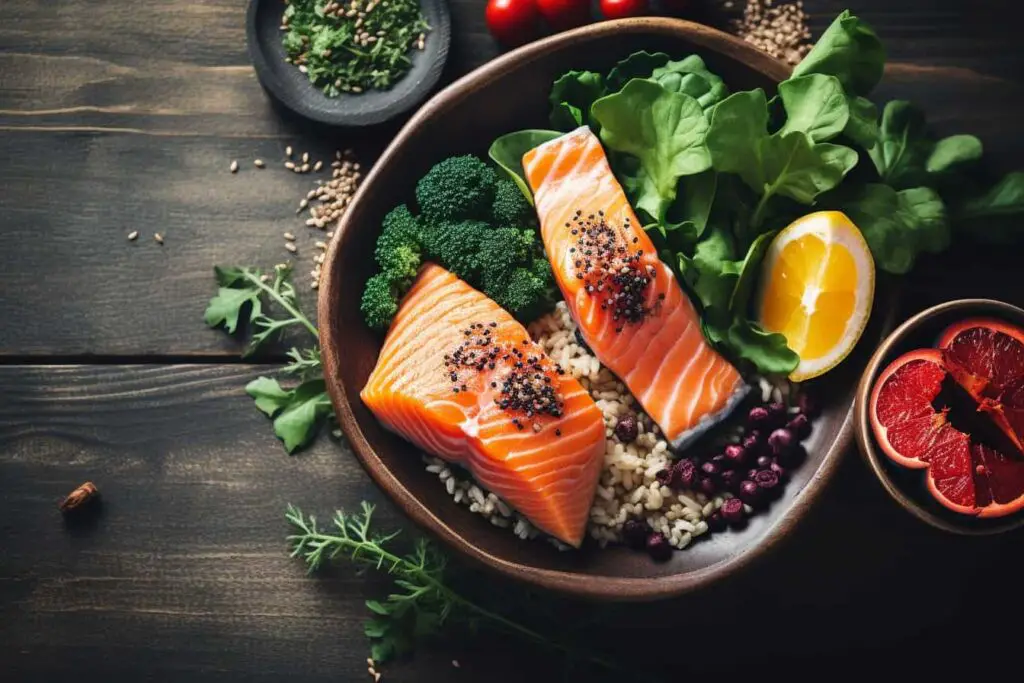
Foods to Avoid for IBS Sufferers
To manage your IBS symptoms, you should avoid certain foods that can trigger flare-ups. These foods can vary from person to person, but there are some common triggers that many IBS sufferers should steer clear of:
- Dairy products: Many people with IBS find that consuming dairy products, such as milk and cheese, can worsen their symptoms. This is because they contain lactose, a sugar that can be difficult for the body to digest.
- Fatty or fried foods: Foods high in fat can be hard for your body to break down and can lead to digestive issues like diarrhea and abdominal pain. Avoiding greasy foods like french fries and fried chicken may help alleviate your symptoms.
- High-fiber foods: While fiber is generally considered beneficial for digestion, it can exacerbate symptoms in individuals with IBS. Foods high in insoluble fiber, such as whole grains and raw vegetables, may cause bloating and gas.
Processed foods high in artificial additives and preservatives are common in today’s standard American diet, but they trigger symptoms such as bloating, gas, abdominal pain, and diarrhea.
They not only contribute to physical discomfort but also affect one’s emotional state. Emotionally consuming these foods stem from and can lead to feelings of frustration, helplessness, and isolation as individuals struggle to manage their symptoms effectively.
Avoiding processed foods high in artificial additives and preservatives are crucial for IBS sufferers seeking relief from both physical and emotional distress.
- Physical Impact:
- Triggers uncomfortable symptoms such as bloating and abdominal pain
- Can worsen diarrhea or constipation
- Emotional Impact:
- Frustration from difficulty managing symptoms
- Helplessness due to limited dietary choices
- Isolation caused by feeling different or excluded from social situations
Learn more about the risk factors of IBS.
IBS Diet Plan and Foods Final Thoughts
While dietary modifications can be challenging, it’s important to remember that your nutritional needs should still be met through a balanced diet and healthy eating habits.
Assess your individual circumstances and consult with a knowledgeable health professional who can provide guidance tailored to your specific needs.
It’s worth noting that an IBS diet may require significant lifestyle changes, but regular exercise is also crucial in managing symptoms. Diet alone may not control all symptoms of IBS.
Each person may have different triggers, so it’s essential to listen to your body and make adjustments accordingly.
IBS Foods and Diet Nutrition FAQs
Can stress and anxiety worsen IBS symptoms?
Yes, stress and anxiety can worsen symptoms of IBS. Research shows that these emotional factors can trigger or intensify digestive issues. It is important to manage stress through relaxation techniques and seek support from healthcare professionals.
Is it necessary to completely eliminate trigger foods from my diet?
It is not necessary to completely eliminate trigger foods from your diet. Instead, try identifying and limiting them to manage symptoms. Work with a healthcare professional or registered dietitian for personalized guidance on managing IBS through diet.
Can I drink alcohol while following an IBS-friendly diet?
Yes, you can drink alcohol while following an IBS-friendly diet, but it’s best to do so in moderation. Stick to clear liquors like vodka or gin, and avoid carbonated beverages and mixers that may trigger symptoms.
Are there any specific herbs or supplements that can help manage IBS symptoms?
One interesting statistic shows that up to 86% of people with IBS find relief from their symptoms by using herbal remedies and supplements. These natural options can help manage symptoms and improve quality of life.
How long does it take to see improvements in IBS symptoms after starting an IBS diet plan?
Typically, it takes a few weeks to see improvements in IBS symptoms after starting an IBS diet plan. But it varies for each individual. Consistency and patience are key in allowing your body to adjust to the new dietary changes.
Is it possible to cure IBS with diet alone?
It is not possible to cure IBS with diet alone, but certain dietary changes can help manage symptoms. A low FODMAP diet has been shown to reduce symptoms in some individuals with IBS.
Are there any natural remedies that can help alleviate IBS symptoms?
Natural remedies for IBS such as peppermint oil, probiotics, and fiber supplements have shown promise in alleviating symptoms of IBS. However, more research is needed to fully understand their effectiveness and determine the appropriate dosage for individuals with IBS.
Sources
- https://www.health.harvard.edu/diseases-and-conditions/a-new-diet-to-manage-irritable-bowel-syndrome
- https://mcnat125-7.med.nyu.edu/conditions/irritable-bowel-syndrome-in-adults/treatments/dietary-changes-for-irritable-bowel-syndrome-in-adults
- https://www.monashfodmap.com/about-fodmap-and-ibs/
- https://www.health.harvard.edu/blog/the-lowdown-on-the-low-fodmap-diet-2020072720662
- https://www.fammed.wisc.edu/files/webfm-uploads/documents/outreach/im/handout-eating-to-reduce-IBS-FODMaP.pdf

